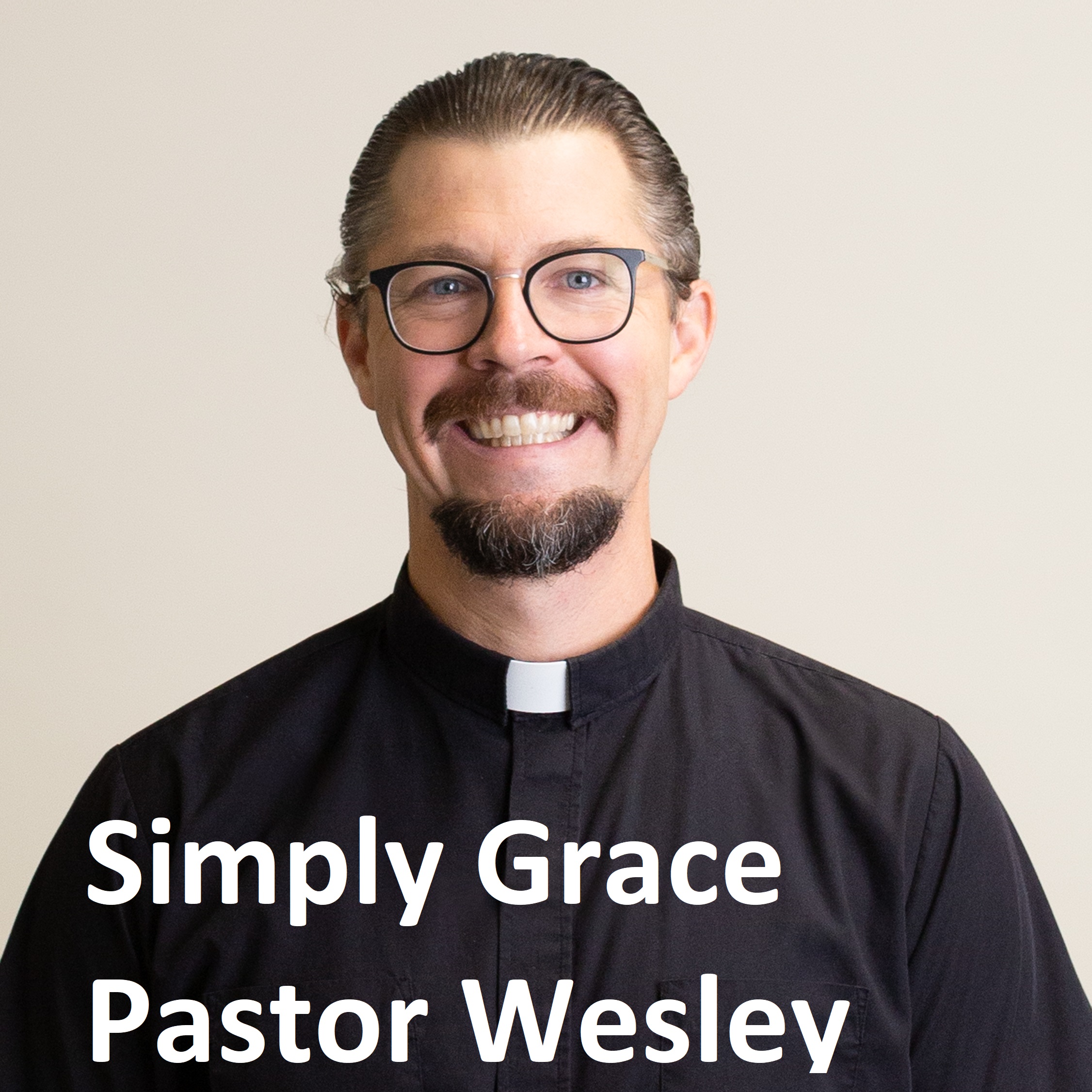Rev. Wesley Menke
13 February 2022
6th Sunday after Epiphany
Jesus, especially as they are represented in the Gospel of Luke unrelentingly turns the world and conventional wisdom upside down. This may not be any clearer than in the Beatitudes. I have found that in order to understand Jesus, sometimes it helps to start at the end, and work backwards. So let us begin with the “Woes” section of the beautitudes.
“But woe to you who are rich, for you have received your consolation.” Luke 6:24
Notice what this is not. It is not a wholesale condemnation, but it is a warning. The temptation rich people struggle with is nohting less than works-righteousness. If you are rich, then you will be tempted to think that you earned your wealth and are a successful hard working person. This quickly slips into believing that God has blessed you for being a good person, and so God will also reward your goodness with eternal life and salvation. Rather, one day all will lose their physical comforts and stand before God’s judgment in eternity.
“Woe to you who are full now, for you will be hungry.” 6:25a
I’ll never forget when I went to Haiti as a seminarian. One day we had lunch in a trendy beach town called Jacmel. We were all very hungry after a long day of traveling, and the restaurant we went to was delicious! It was strange to me that our tour guide only ate half his sandwich for lunch. He had told us how hungry he was too! He took the other half with him. Then, we visited a Lutheran church that was being established on a hill outside of Jacmel. We went there. It was literally a little clearing serrounded by trees and shacks were people lived. They had lots of people who would gather at this church, but no building. After our time with the pastor, the tourguide gave him the other half of the sandwich. The pastor’s eyes grew large and he clutched the sandwich to his chest and uttered a heartfelt, “Thank you!” The shared a smile and hug that was full of love. I remember having a full stomach and feeling kind of empty inside.
Again, there is no condemnation here against eating a delicious meal, but there is a warning to not forget that the physical comfort from eating is temporary; and the deepest hunger and longing of your heart and sould cannot be satisfied with mere food and drink.
“Woe to you who are laughing now, for you will mourn and weep.”
Elie Wiesel said the opposite of love is not hate, it is indifference. The worst atrocities of history, the genocides and systematic tormenting of people are able to occur in plain sight because of a numbness and a paralysis of emotional and moral response. There is no shortage of entertainment in the world today, popping out at us from screens everywhere we look. The consequence of so much clever and pretty entertainment is a distraction, but only a temporary distraction from the painful realities of injustice we experience personally and collectively.
“Woe to you when all speak well of you, for that is what their ancestors did to the false prophets.”
Because, if, as a pastor, as you all will remember I think of you as pastors too, if you focus your ministry on making everybdy happy, and everybody to like you, then you will probably have to lie, regularly compromise your values, and not preach the gospel. You cannot make it your aim to get everyone to like you. It’s impossible and dangerous. But why?
Jeremiah 17:5-10 tells us why. It says that the human heart is a total travesty full of deceit and evil. We call this total depravity in evangelical theology. There is a warning here to not put your trust in people. People are frail and will disappoint. Instead, put your trust in God who is dependable.
If you are just waiting around for somebody else to solve a problem, then you will be waiting for a long time. Sociologists call this problem the diffusion of responsibility. Nobody is going to solve your problems for you; and no perfect person can solve larger problems in the world either. The only way things will change is if lots of people step up and each contributes to doing something; and taking responsibility.
This can be a scary thing to do at first; to confront evil and bad behavior. But you can do so, when you are not worried about yourself, but trust in God to provide for you. You are like a tree planted by the stream, nourished and strong.
Psalm 1 confirms this reality. People who do evil things will perish. They will be like leaves that fall from a tree that gets dried out. They may give you a hard time for a while, but it won’t last. God will last, the truth will last, and so we want to live and act in a way that communicates our faith in God above all else.
Finally we can really dive into the blessings of the Beatitudes, with hearts ready to receive Christ’s wisdom.
“Blessed are the poor; theirs is the kingdom of God.”
Do you think that poverty is a kind of divine punishment or a result of bad behavior? If you think that, then you are wrong. Jesus says the opposite. Poverty is a sign of God’s blessing. Why? Because the kingdom of God belongs to the poor. The Kingdom of God is the church. So the church, including the buildings, the pastor, all of you, all of this belongs to the poor. The church exists to serve the poor. It might be a lifestyle more similar to our ancestors. It might be a lifestyle we haven’t yet imagined.
“Blessed are the hungry now, for they will be filled.”
It would be absurd to think that these words of Jesus allow the church to rest on it’s laurels and assume that food will magically fill the bellies of the chronically hungry and food insecure. Rather, Jesus’ is giving his disciples, that means you and me, a ministry. We are to be about the business of giving food to the hungry. We are in the feeding business. That is why Holy Communion is central to our worship. It is also why we have coffee and snacks between the worship services. It’s also why we will someday soon have another amazing potluck.
We can also interpret hunger as being more than just physical, but also spiritual. There is a deep longing in our heart and soul to be fulfilled. Be thankful for this hunger, because it means that you haven’t arrived yet, you are still on life’s journey and there is fulfillment and joy you have not yet experienced.
“Blessed are you who weep now, for you will laugh.”
It can be overwhelming and sorrowful to open your eyes to see reality. There is tremendous pain which leads to weeping. Expressions of sadness are not bad for the soul, they are good, and allow for appropriate response and allow for healing and restorative action to be taken leading to laughter and happiness.
Five days after my accident, when I was hit by an SUV while walking across the street, I went to the podiatrist. The bottom of my right toe was raw from road rash. The nurse had removed the bandage, and when the doctor came in he looked at it for a moment and then without warning me grabbed a scalpel looking instrument and started scraping and poking around the wound. I jumped up and almost off of the examination table and asked what he was doing. He explained that the wound needed to be agitated and aired out more often in order to heal. He taught me how to do it at home.
You are blessed when you weep because it means that you are working through something painful; a wound either physical or otherwise. All of our feelings and emotions have purposes. Deep and profound sadness is a part of the journey toward laughter and joy.
“Blessed are you when people hate you, and when they exclude you, revile you, and defame you on account of the Son of Man. Rejoice in that day and leap for joy, for surely your reward is great in heaven; for that is what their ancestors did to the prophets.” Luke 6:22-23
This is really about legacy. What do you want people to say about you and think about you after you are gone? In the moment, in any given moment, you could find yourself being criticized. There is something about the truth that is indelible and enduring. The truth has a way of coming out despite foolish attempts to flush it down the toilet. The Apostle Paul suffered terribly for preaching the gospel. He was imprisoned on multiple occasions. Now we regard him as a saint.
Resurrection and Eternal Life according to Corinthians.
1 Corinthians 15:12-20 is a very interesting passage. Paul argues that In order to make sense of the resurrection from the dead, it must be a universal phenomenon. Resurrection must not be understood to be an aberration from reality, but an essential component of reality. Paul says that if all people are not raised form the dead, then Christ is not raised from the dead either. He even goes on to say that if we are people who put all of our hope in Jesus’ resurrection alone, then we are to be pitied. This is another one of those moments where the Bible does not support a Superhero theology. Super-Hero theology imagines Jesus with Superhuman powers which culminate in the power of eternal life over death. Paul says that’s rubbish. If you’re waiting and hoping for Jesus to fix everything then you are to be pitied. Instead, Paul invites you to see Jesus as the firstborn of many. Paul invites you to take the long-view of time. Death is not the end, but rather in the fullness of times our lives and our legacies continue. Furthermore Christianity is not a ticket out of this world. Christians are people so committed to God’s way of justice in the world, God’s kingdom, that we won’t let a petty thing like our own mortality distract us from the commission to establish God’s kingdom on earth. But most importantly Paul reminds us that resurrection is not a reward for good people; that would be works-righteousness. Resurrection is a fact of life built into the universe. Eternal life is a gift of God’s grace given freely to you. Amen.

Sermon for August 7, 2022. Thank you Pastor Steve!


Enemies Seek to do You Harm Balaam and the Ass - Rembrandt Balaam was a seer, oracle, or prophet from antiquity. His story is...